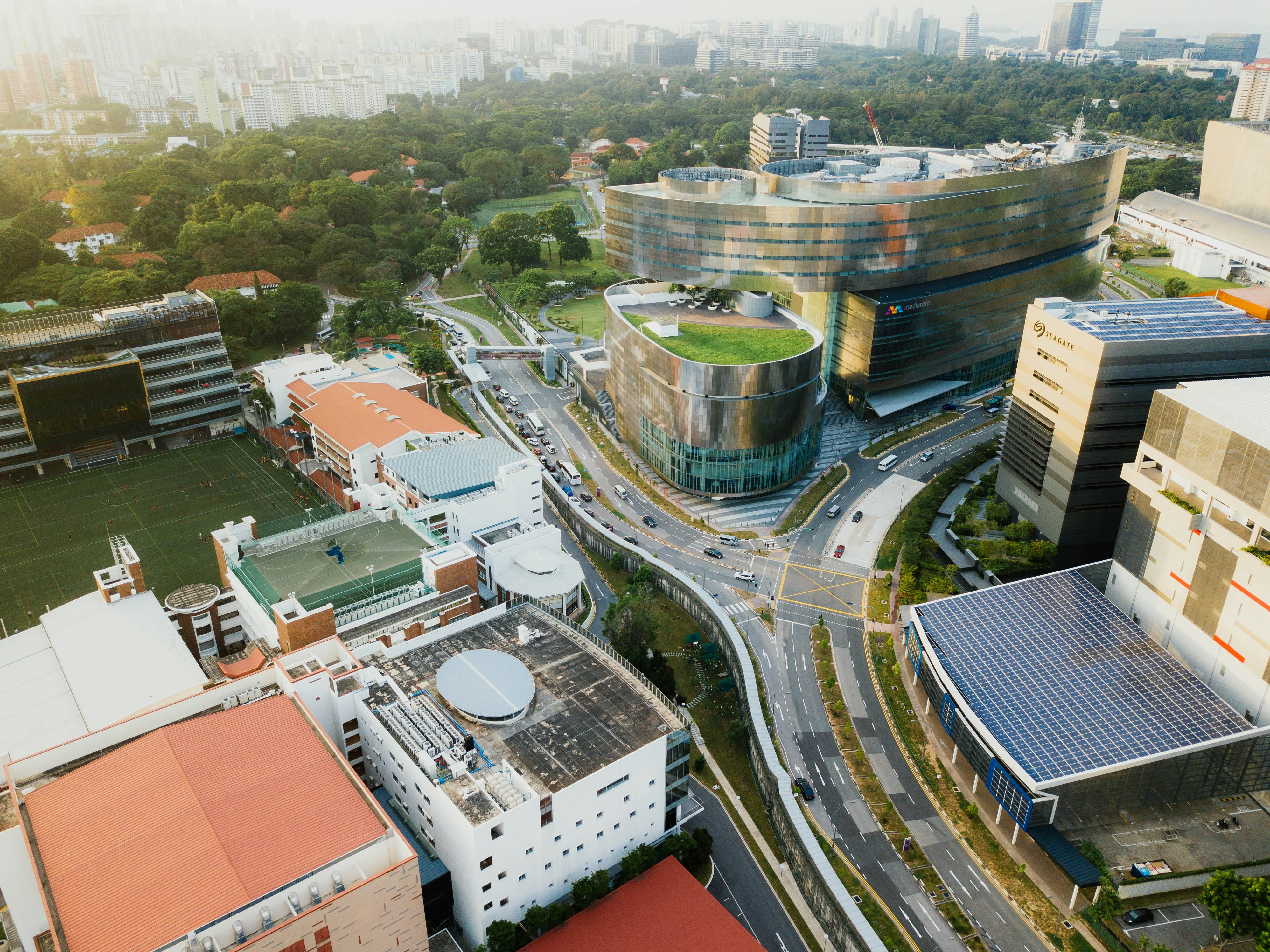Introduction to Sustainable Cities
Sustainable cities are increasingly recognized as essential frameworks for addressing contemporary urban challenges, particularly in the context of the Arab world, where rapid urbanization and high population growth intensify various pressures on infrastructure and the environment. At their core, sustainable cities strive to integrate principles of sustainability into urban planning and development, ultimately promoting environmental stewardship, social equity, and economic viability.
The principles of sustainability encompass a holistic approach to urban living, targeting three key dimensions: environmental, social, and economic. Environmentally, a sustainable city seeks to minimize its ecological footprint by reducing waste, conserving resources, and utilizing renewable energy sources. Socially, it aims to promote inclusivity and equity, ensuring that all residents have access to essential services, clean public spaces, and opportunities for social mobility. Economically, a sustainable city fosters resilient economic systems that support local businesses and create jobs while also addressing issues of affordability and accessibility.
In the Arab world, the pressing need for sustainable development becomes increasingly evident as cities expand and populations rise. Urban areas in this region are experiencing unprecedented growth, which poses significant challenges, including infrastructure strain, increased pollution, and limited natural resources. The integration of sustainable practices into urban planning is vital, as it can mitigate these issues while enhancing the quality of life for residents.
Moreover, the adoption of sustainable city strategies serves as a pathway to achieve various regional and global objectives, including the United Nations Sustainable Development Goals (SDGs). These goals represent a shared vision for a better and more sustainable future for all. Therefore, through the commitment to sustainable urban development, cities in the Arab world can not only improve their current living conditions but also contribute significantly to the global dialogue on sustainability.
The Role of Industrial Engineers
Industrial engineers play a pivotal role in the development of sustainable cities, particularly in the context of the Arab world. Their expertise lies in the application of systems analysis, optimization techniques, and efficiency strategies, which are crucial in addressing the unique challenges faced by urban areas. These professionals focus on improving resource management in urban settings, ensuring that the limited resources available are utilized effectively to meet the growing needs of urban populations.
One of the fundamental contributions of industrial engineers is their ability to analyze complex urban systems. By employing methodologies such as systems thinking, they can identify interdependencies within city infrastructures, including transportation, waste management, and energy usage. This holistic perspective allows them to devise integrated solutions that enhance the overall functionality of urban areas while promoting sustainable practices. For example, they can develop models that minimize traffic congestion through better scheduling and routing, thereby reducing emissions and improving air quality.
Furthermore, industrial engineers are instrumental in optimizing processes that reduce waste. Through the application of lean principles, they can streamline operations, ensuring that materials and energy are used as efficiently as possible. In the realm of urban development, this could translate to implementing recycling programs, optimizing public transport systems, and designing buildings that adhere to sustainability standards. By focusing on waste reduction and resource optimization, industrial engineers not only contribute to environmental sustainability but also bolster economic resilience within cities.
Moreover, these engineers work collaboratively with other stakeholders, including city planners, policymakers, and community groups, to foster a comprehensive approach to urban development. Their ability to communicate technical insights into actionable plans is vital for promoting policies that align with sustainable city goals. By leveraging their unique skill set, industrial engineers are essential in transforming urban centers into models of sustainability, thereby enhancing the quality of life for residents and ensuring a balanced coexistence with the environment.
Challenges Facing Urbanization in the Arab World
The rapid urbanization in the Arab world presents a myriad of challenges that impact the sustainability and livability of cities. One of the foremost issues is the staggering population growth; the region has experienced substantial urban migration, leading to an increase in both population density and demand for housing. This phenomenon often outpaces the development of essential infrastructure, resulting in overcrowded cities where basic services like water supply, waste management, and transportation become overwhelmed. Such inadequacies hinder not only the quality of life for residents but also the ability of cities to sustain economic growth.
Another significant challenge is the economic disparity present within many urban areas. In several countries, wealth is unevenly distributed, leading to stark contrasts between affluent neighborhoods and impoverished districts. This division can exacerbate social tensions, limit access to crucial resources, and hinder opportunities for upward mobility. As urban centers become the focal points for economic activity, addressing this disparity becomes paramount to ensuring equitable development that benefits all citizens.
Additionally, environmental degradation poses a critical challenge for urbanization in the Arab world. Rapid development often disregards ecological considerations, leading to issues such as air and water pollution, loss of green spaces, and waste accumulation. The consequences of environmental neglect not only affect public health but also undermine the resilience of urban infrastructures against climate change. As industrial engineers are equipped with methodologies to improve efficiency and sustainability, their expertise becomes essential in devising solutions that can mitigate these adverse effects. By integrating sustainable practices, industrial engineers can play a pivotal role in transforming urban landscapes into healthier and more livable spaces amid these prevailing challenges.
Integrating Sustainable Practices in Urban Planning
In the quest for sustainability, industrial engineers play a pivotal role in transforming urban planning processes. By integrating sustainable practices, they contribute significantly to the development of eco-friendly cities in the Arab world. One of the essential elements of this integration involves the use of green building materials. These materials, which are sourced responsibly and have a minimal environmental footprint, can lead to reduced energy consumption and enhance the overall resilience of urban structures.
Furthermore, renewable energy sources are crucial in creating sustainable urban environments. Industrial engineers can facilitate the implementation of solar panels, wind turbines, and geothermal systems in urban developments. By effectively designing energy-efficient systems, they can help cities minimize reliance on fossil fuels and encourage the development of a more sustainable energy infrastructure. This shift not only benefits the environment but also promotes energy security and financial savings over time.
Waste management strategies are another area where industrial engineers can make a significant impact. Implementing systems for recycling, composting, and waste reduction is essential for sustainable urban living. Engineers can optimize waste management processes by introducing innovative technologies that streamline operations and enhance resource recovery, leading to more efficient use of materials and reduced landfill use.
Moreover, sustainable transportation systems are vital for reducing the carbon footprint of urban areas. Industrial engineers are well-positioned to design and implement efficient public transportation networks, promote the use of electric vehicles, and encourage active transportation methods such as walking and cycling. By creating integrated transportation solutions, they can foster a shift towards more sustainable commuting practices, ultimately enhancing urban mobility and quality of life.
Case Studies: Successful Implementations
Various cities across the Arab world have emerged as leading examples of sustainable engineering practices, showcasing the essential role of industrial engineers in achieving their sustainable development goals. Through strategic planning and innovative solutions, these cities have effectively addressed environmental challenges while promoting economic growth and social well-being.
One notable case is Masdar City in Abu Dhabi, United Arab Emirates. Designed to be a zero-carbon city, Masdar utilizes renewable energy sources, smart transportation systems, and efficient waste management practices. Industrial engineers played a critical role in the design and execution of this project, ensuring that sustainability principles were integrated into the city’s infrastructure. The successful implementation of advanced technologies, such as solar energy plants and green building designs, has positioned Masdar as a global leader in sustainable urban development.
Similarly, the city of Dubai has made significant strides in promoting sustainability through its 2021 Dubai Smart City strategy. With the help of industrial engineers, Dubai is focusing on enhancing its infrastructure while minimizing environmental impact. For instance, the Sustainable City initiative aims to create a carbon-neutral community supported by renewable energy and eco-friendly practices. The project demonstrates how the application of industrial engineering principles helps optimize resources, reduce waste, and promote a circular economy.
In Jordan, the city of Irbid has implemented sustainable water management systems to cope with water scarcity issues. Industrial engineers have been instrumental in designing efficient distribution networks and recycling programs that reduce water loss and enhance accessibility for underserved populations. Such projects highlight the importance of industrial engineering in addressing sustainability challenges faced by urban communities.
These case studies illustrate how industrial engineers are pivotal in transforming urban environments, driving the adoption of sustainable practices in the Arab world. The positive impacts of these initiatives not only benefit the environment but also enhance the quality of life for residents, showcasing the necessity of integrating engineering expertise into sustainable city planning.
Collaboration with Stakeholders
In the quest for building sustainable cities in the Arab world, the role of industrial engineers is pivotal, particularly in fostering collaboration with a diverse range of stakeholders. These stakeholders include government entities, private sector organizations, and non-governmental organizations (NGOs). Effective partnerships among these groups are crucial for the successful implementation of sustainable practices and policies.
Industrial engineers serve as a bridge between stakeholders, facilitating mutual understanding and ensuring that various interests align towards common sustainability goals. For instance, when collaborating with government entities, industrial engineers can provide critical insights into efficient resource management and innovative process improvements. By engaging with policy makers, they contribute to the development of regulations that promote sustainability while considering the economic realities of the region.
Moreover, industrial engineers play a vital role in the private sector, where they can help companies adopt sustainable practices that not only benefit their operations but also contribute to the well-being of the communities in which they operate. Through effective communication, industrial engineers can share best practices and develop collaborative projects that emphasize sustainability. These initiatives can include reducing waste, optimizing supply chains, and enhancing energy efficiency, thereby fostering a culture of responsibility within industries.
Collaboration extends to NGOs as well, which often have deep connections to local communities and a better understanding of their needs. Industrial engineers can partner with these organizations to implement community-driven projects that align with broader sustainability goals. This can involve conducting workshops, developing educational programs, or participating in local environmental initiatives. Together, stakeholders can collaborate to create a cohesive strategy that ensures sustainable development is not only achievable but also inclusive and equitable.
Technology and Innovation in Urban Development
Advancements in technology and innovation play a pivotal role in the efforts of industrial engineers to create sustainable cities in the Arab world. The emergence of smart city technologies is revolutionizing urban development, enabling cities to become more efficient, resilient, and environmentally friendly. These technologies encompass a range of solutions, including the Internet of Things (IoT), artificial intelligence (AI), and big data analytics. By integrating these advancements, industrial engineers are equipped to address critical challenges associated with urbanization, such as resource management, waste reduction, and improving public services.
Data analytics has emerged as an indispensable tool in the arsenal of industrial engineers focused on developing sustainable urban environments. By harnessing data from various sources, including traffic patterns, energy consumption, and social behavior, engineers can gain insights into how to optimize urban planning and resource allocation. This analytical approach is essential for identifying areas where efficiency can be improved and sustainability measures can be implemented effectively. For instance, predictive analytics can forecast energy demands, facilitating the integration of renewable energy sources and reducing the overall carbon footprint of urban areas.
Moreover, automation technologies contribute significantly to creating sustainable cities. Automation enables industrial engineers to enhance operational efficiency across various sectors, from transportation to construction. Automated systems can streamline processes, reduce waste, and lower energy consumption, which are crucial components of sustainable urban environments. The implementation of automated vehicles, for instance, has the potential to decrease traffic congestion, reduce emissions, and improve the overall quality of urban life.
In sum, technology and innovation are shaping the future of urban development. By leveraging smart city technologies, data analytics, and automation, industrial engineers are well-positioned to develop sustainable cities in the Arab world that not only meet the needs of their inhabitants but also contribute positively to the environment and overall societal well-being.
Education and Training for Future Engineers
The role of industrial engineers in developing sustainable cities is increasingly significant, highlighting the necessity for a robust educational framework that prepares future professionals for the challenges ahead. Education and training programs must not only focus on fundamental engineering principles but also prioritize the integration of sustainability concepts within their curricula. Such an approach ensures that aspiring industrial engineers are well-equipped to tackle the unique demands presented by sustainable urban development.
To achieve this, engineering schools in the Arab world should embrace interdisciplinary programs that combine traditional engineering coursework with modules focused on environmental sustainability, sustainable resource management, and social responsibility. This could involve the incorporation of case studies that illustrate successful sustainable development initiatives within the region, thereby providing students with practical insights into real-world applications. Additionally, fostering partnerships with industries and governmental organizations can create opportunities for students to engage in internships that revolve around sustainable engineering practices.
Professional development programs also play a crucial role in shaping the capabilities of industrial engineers. Continued education initiatives that focus on emerging technologies and innovative practices in sustainability can greatly enhance the skill sets of current professionals. Workshops, seminars, and certifications centered on sustainable engineering solutions can further complement formal educational background, ensuring that engineers remain at the forefront of the field.
Ultimately, a well-designed educational framework that prioritizes sustainability concepts will prepare future industrial engineers to make informed decisions, apply strategic thinking, and implement innovative solutions in the quest for building more sustainable cities in the Arab world. By equipping them with the necessary skills and knowledge, we can enhance their ability to contribute positively to society while addressing the pressing challenges of urban development.
Conclusion: A Path Forward for Sustainable Cities
The journey toward sustainable cities in the Arab world is both a challenge and an opportunity. Throughout this blog post, we have highlighted the multifaceted role of industrial engineers in this endeavor. Their expertise is instrumental not only in optimizing resource allocation but also in implementing innovative solutions that address the pressing urban issues facing the region. By integrating principles of sustainability into every phase of urban planning and development, industrial engineers are uniquely positioned to improve efficiency and reduce environmental impact.
As cities in the Arab world continue to grow, the demand for sustainable practices becomes ever more critical. Industrial engineers are pivotal in fostering collaboration between governmental agencies, private entities, and local communities. This collaboration is essential for the formulation of effective policies that prioritize sustainability while accommodating the needs of diverse populations. Furthermore, the incorporation of technology and data analytics is transforming the landscape of urban planning, empowering industrial engineers to design cities that are not only more efficient but also more resilient to challenges such as climate change.
Looking toward the future, a vision for sustainable urban development must embrace innovation, education, and community involvement. Industrial engineers play a crucial role in educating stakeholders about sustainability and facilitating conversations on its importance. This, combined with their technical skills, can lead to the creation of urban environments that enhance quality of life while promoting sustainable growth. The commitment to sustainability, combined with the expertise of industrial engineers, provides a solid foundation for developing cities in the Arab world that are both viable and vibrant.
In conclusion, the path forward for sustainable cities is paved with collaboration, commitment, and a shared vision of the future. The role of industrial engineers will be central to this transformation, enabling the creation of urban spaces that honor both human aspirations and the planet’s resources.


